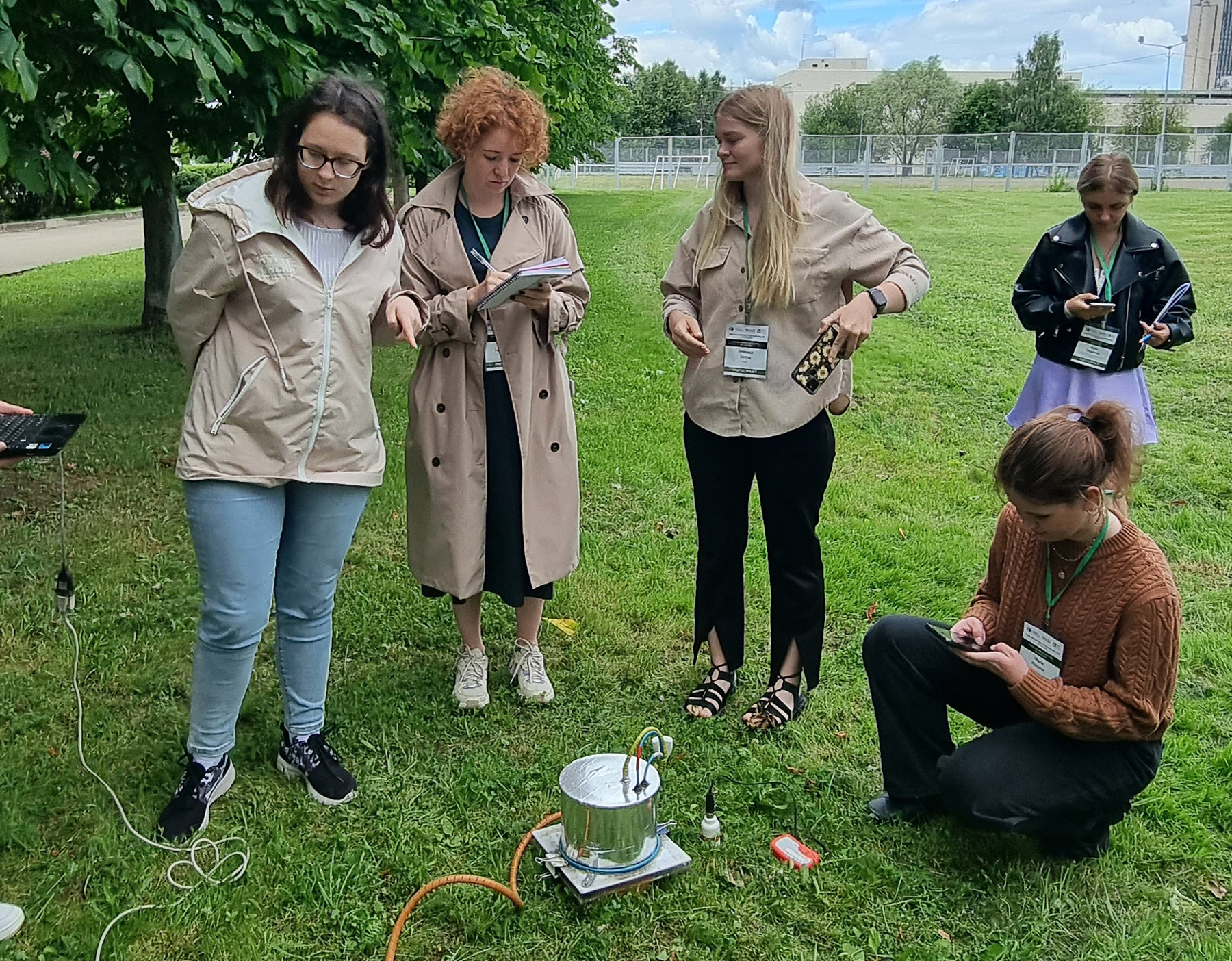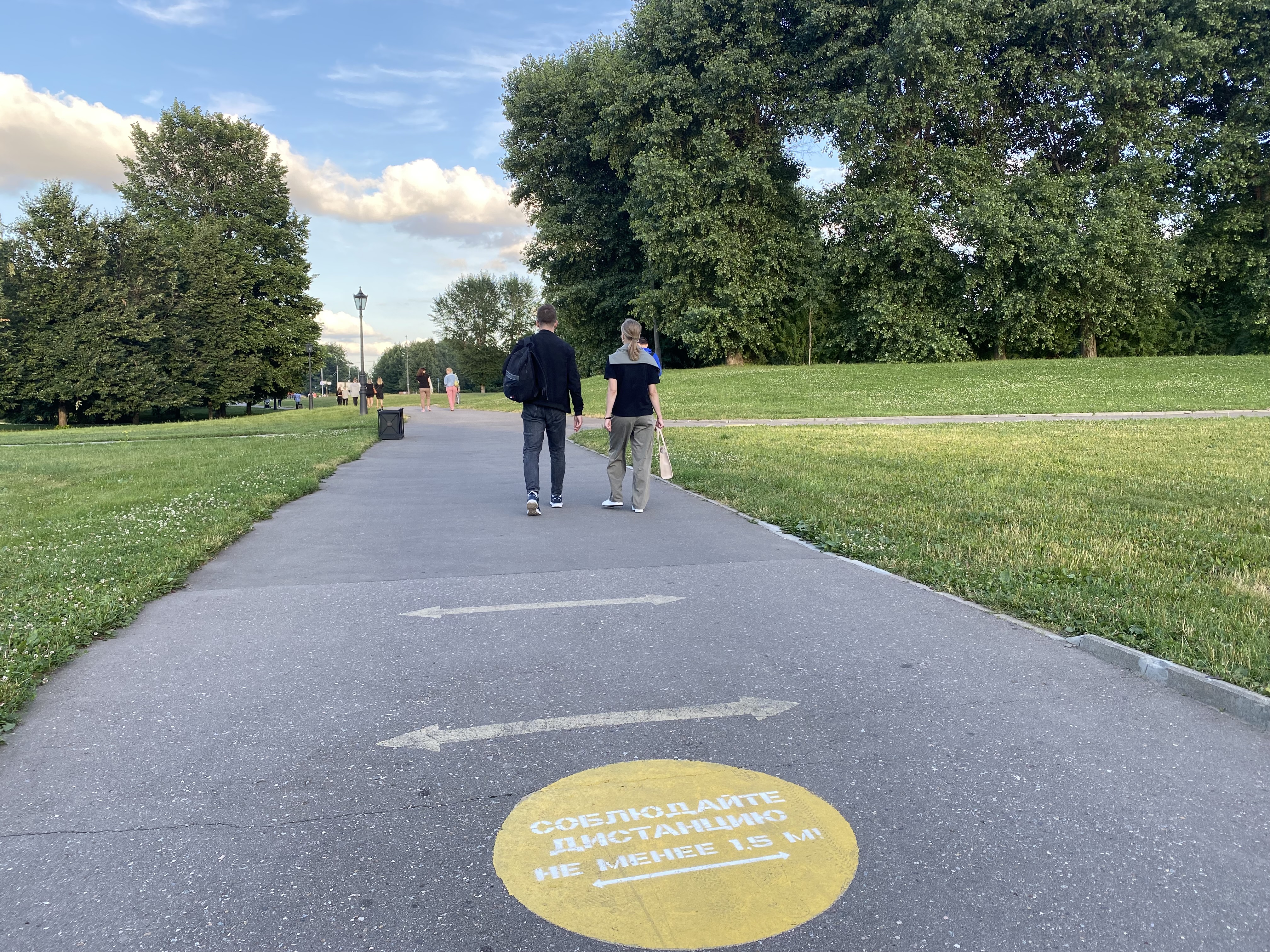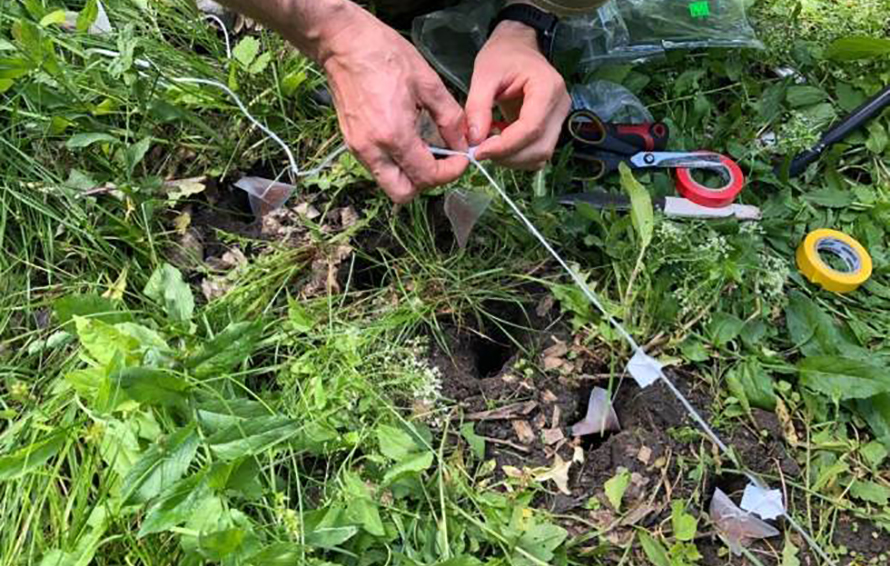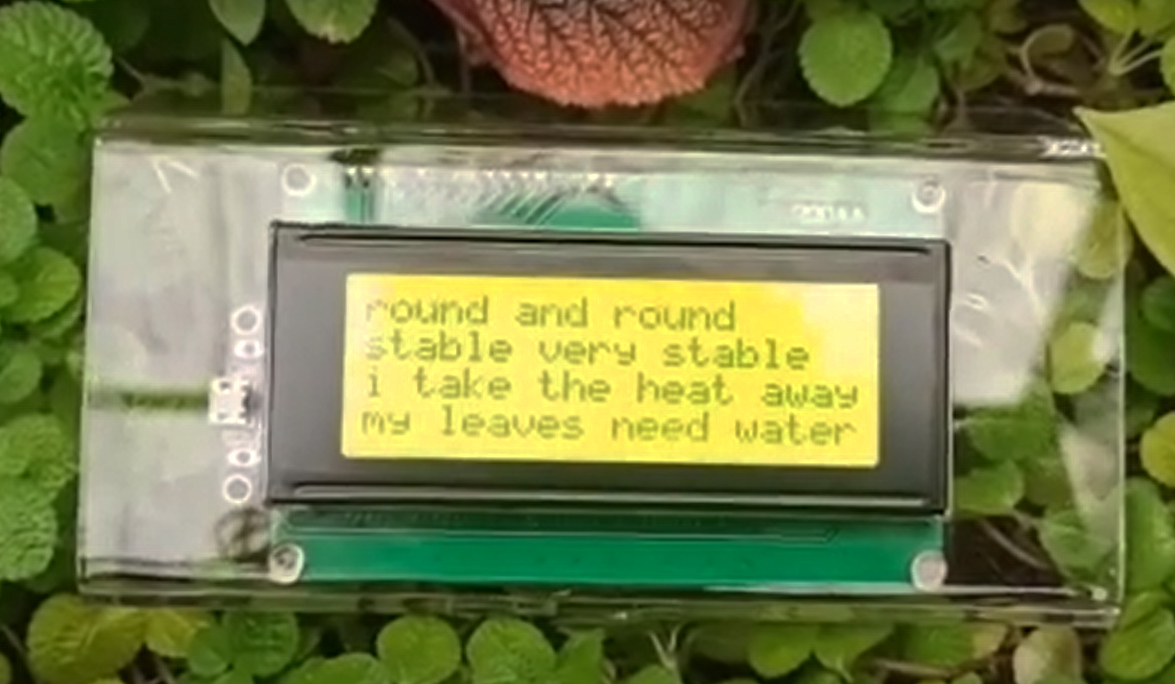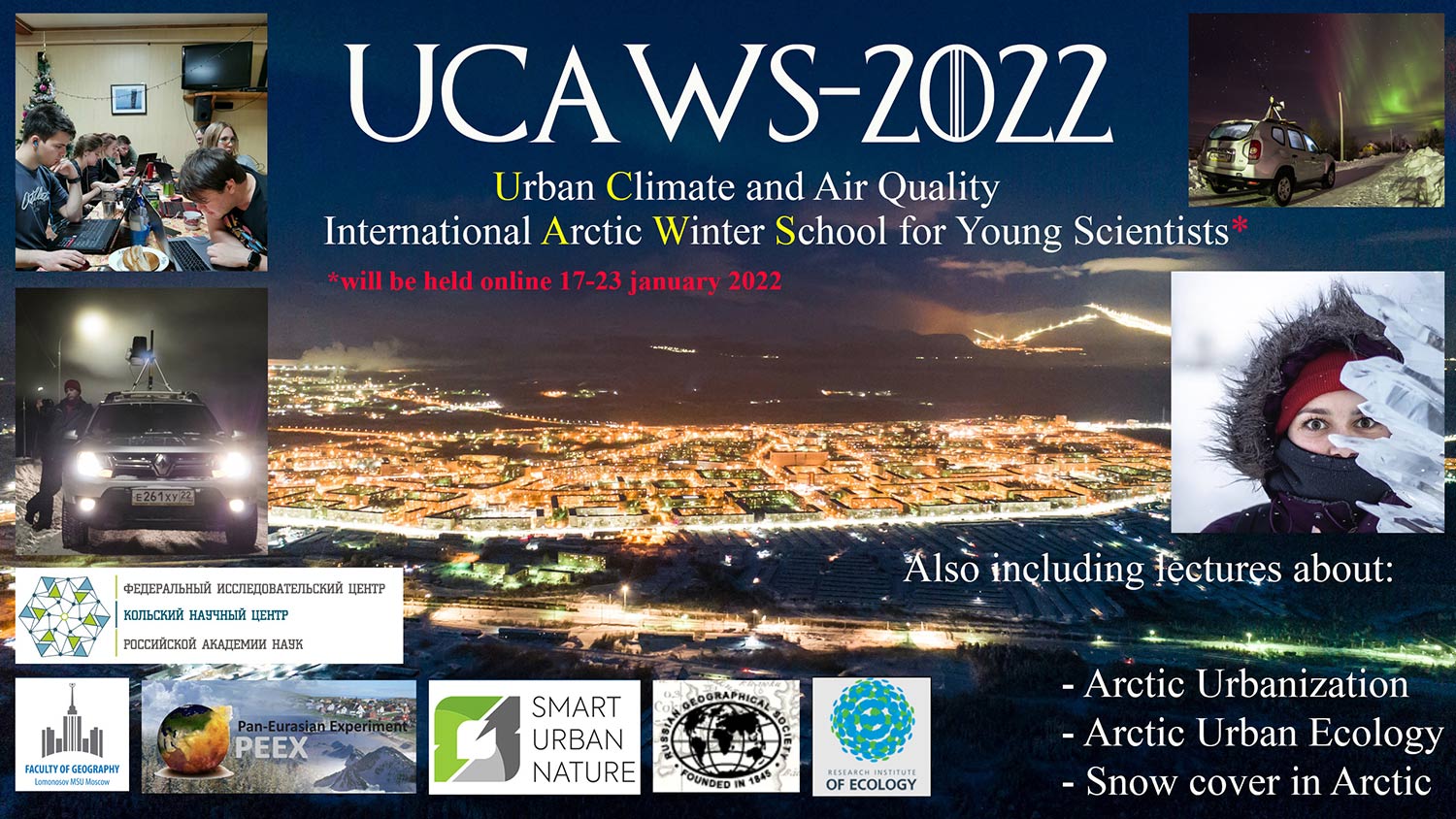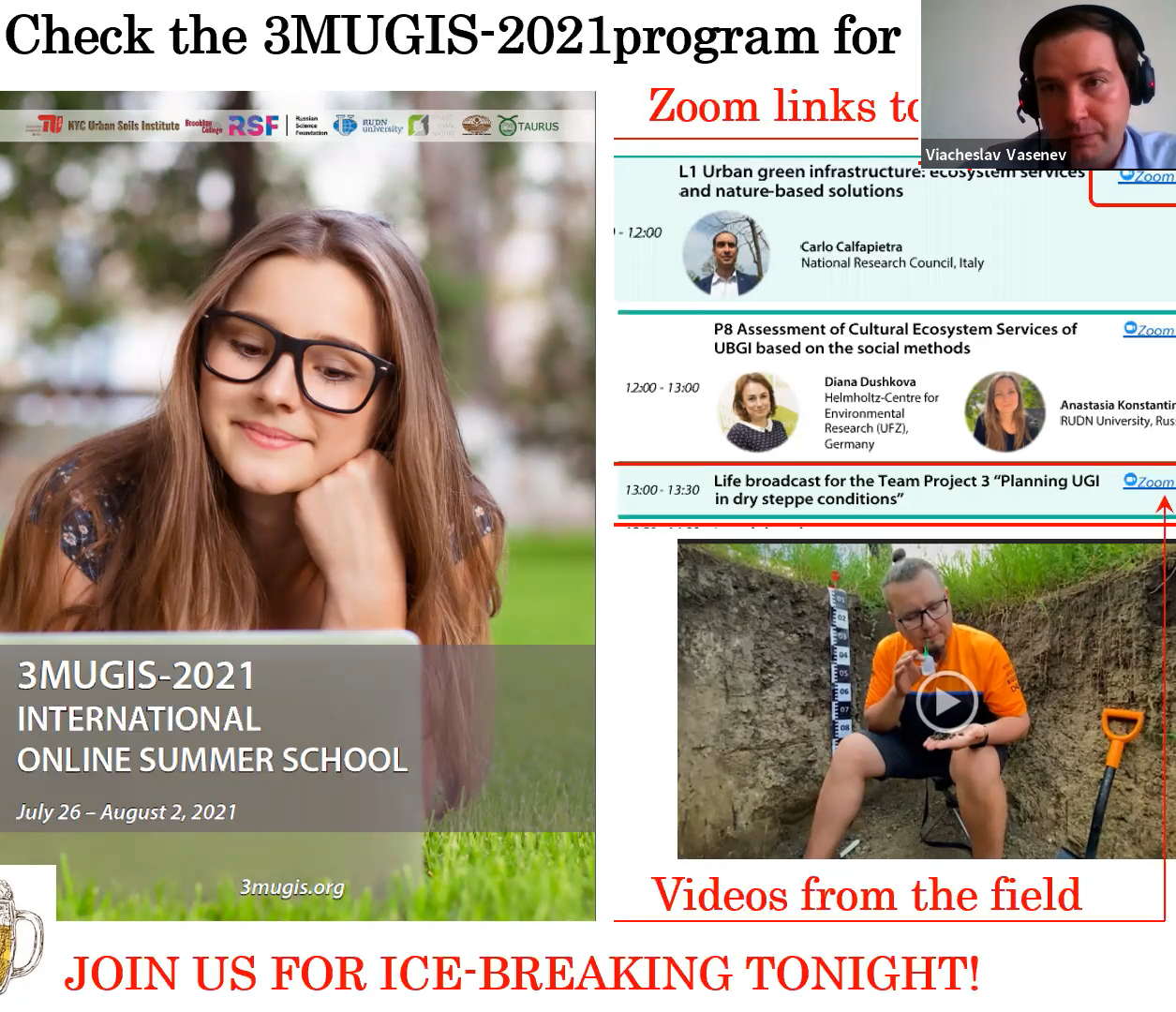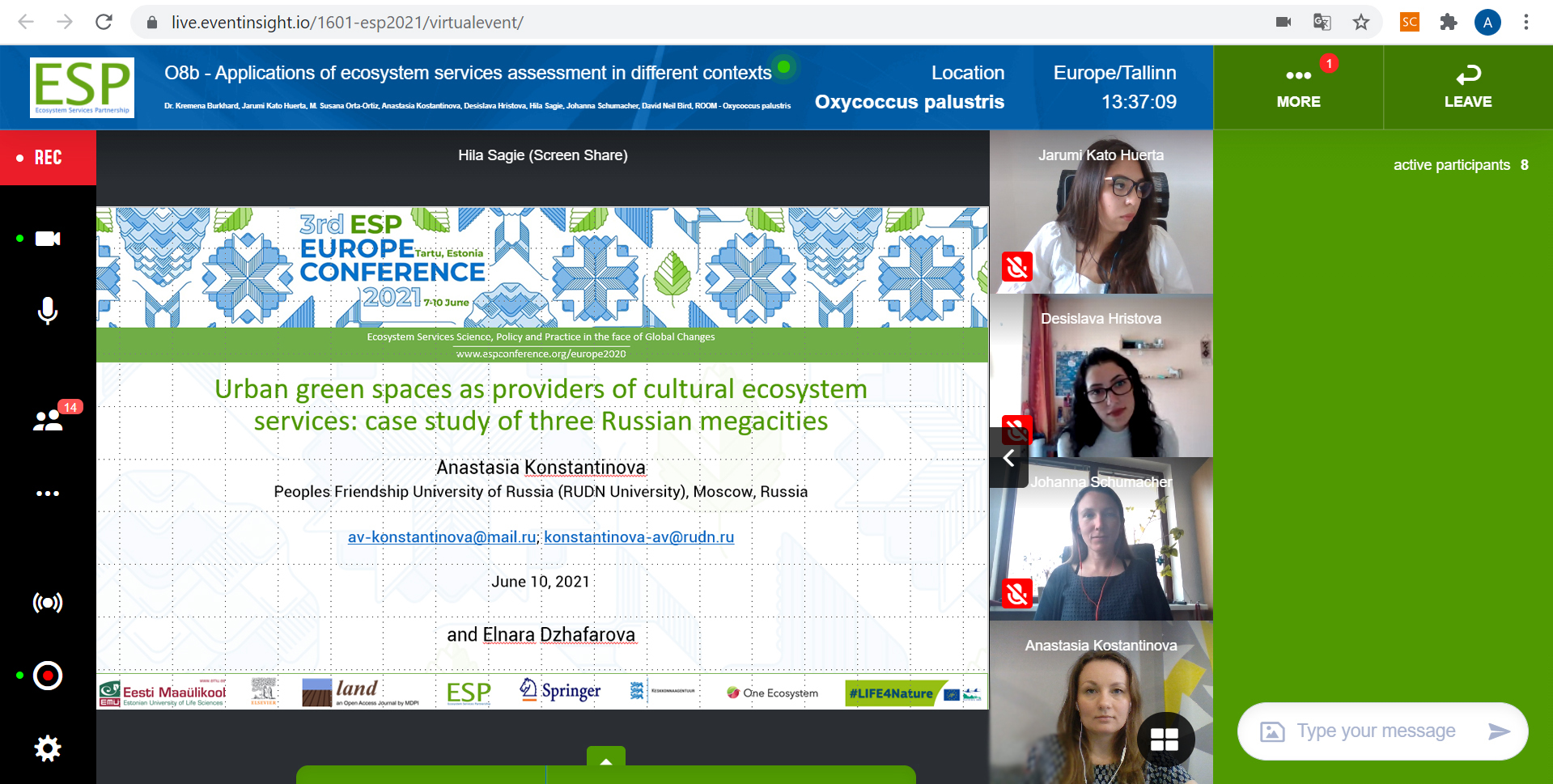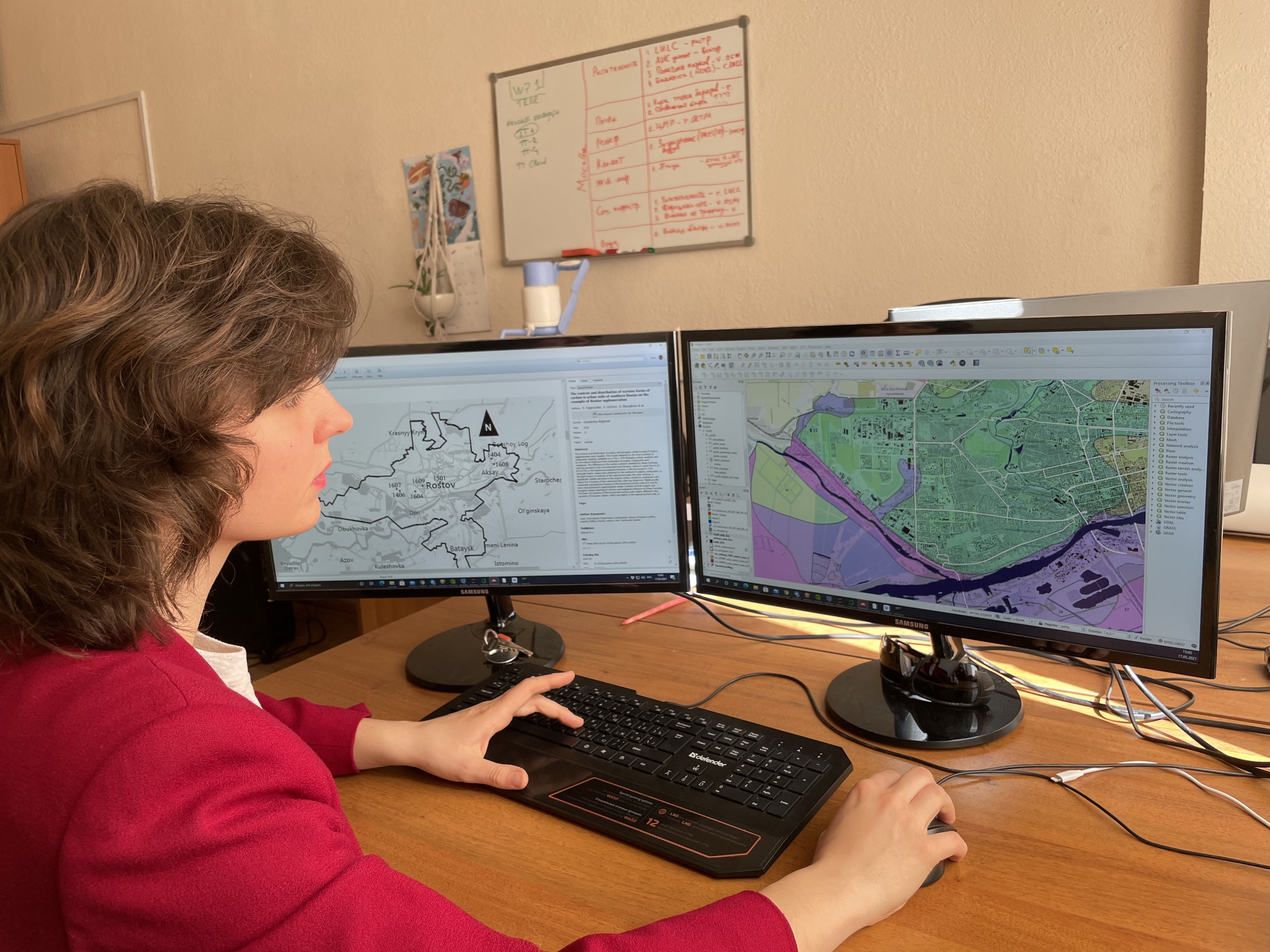In July 18—22, 2022, the 6th International Summer School 3MUGIS (Monitoring, Modeling and Managing Urban Soils and Green Infrastructure) was held within the Department of Landscape Design and Sustainable Ecosystems of the RUDN University. The school was organized with the support of the Russian Science Foundation and under the umbrella of the International Union of Soil Scientists and the Institute of Urban Soils of New York in collaboration with universities, scientific organizations and research groups from around the world. The partners of the school were Brooklyn College (USA), Kola Science Center of the Russian Academy of Sciences, Southern Federal University and many others. All the organizers and partners of 3MUGIS are united by the desire to exchange knowledge, ideas and experience at the international level.
SUN lab researchers explored human-nature relations in a pandemic time
SUN lab researchers in collaboration with Australian and German colleagues studied the role of contact with nature during and after COVID-19 pandemic in Moscow. Scientists from RUDN University, the University of Western Australia, Helmholtz-Centre for Environmental Research and Wageningen University conducted the research that aims to explore the pathways and implications of human-nature interactions during and after the COVID-19 pandemic and how health problems and pandemic challenges can be mitigated through contact with nature.
The finding will help to find out what novel actions and adaptation strategies can be established that can have positive outcomes for both humans and nature. The study was supported by the Russian Science Foundation grant; the results were published in the journal Land in May, 2022.
Russia is a white spot on the tea bag index map: an approach to extend the network of global soil decomposition monitoring
The tea bag approach (http://www.teatime4science.org/about/the-project/) for measurement of microbial decomposition of soil organic matter has been applied for mountain, coastal, forest and arctic ecosystems, while for urban ecosystems located in various biomes such experience is not widely distributed. In Russia there are few amount of sites for which was provided the soil organic matter decomposition assessment by tea bag approach.
Smart Urban Nature team together with colleagues from the Kola Science Centre RAS, Institute of Geography RAS, Southern Federal University, Institute of Physicochemical and Biological Problems of Soil Science, RAS, the Central Chernozem Reserve, have decided to extend of the global map of the tea bag index and organized monitoring of the microbial activity of various soils in the European Russia with financial support of RSF No. 19 -77-30012.
To be the wind for the tree: Tree Talker as an intermediary between science and art
On February 8, 2022, the Museum of Contemporary Arts named after S.P. Diaghilev presented an exhibition accompanied by an interview film about the interdisciplinary science-art project “To be the wind for the tree” by Natalya Fedorova, a media artist and lecturer at the Faculty of Liberal Arts and Sciences. The project is inspired by the Herbarium of the Botanical Garden of St. Petersburg State University and was created in external partnership with the Smart Urban Nature laboratory of RUDN University, the laboratories of the Art & Science program of ITMO University and the Forestry Engineering Academy.
SUN Lab scientists took part in organizing international winter school on urban climate
In January 2022, the first experimental international winter school for young scientists “Urban Climate and Air Quality Winter School (UCAWS-2022)” was successfully held at the Khibiny educational and scientific base of Moscow State University in Murmansk region. The school was designed for senior students, masters, graduate students and young scientists under 40 who are interested in the problems of urban climatology, urban air quality, urban studies, urban ecology in relation to the cities of the Eastern and Western Arctic. This topic is extremely promising in recent decades, especially in the light of Russia’s chairmanship of the Arctic Council in 2021–2023.
Smart Urban Nature laboratory wishes a Happy New Year
The last month of 2021 was so busy that we did not have enough time to sum up the results of the whole year. Now we had a rest and, looking back, we would like to share some of our achievements.
The year 2021 gave us new results and new colleagues, allowed us to implement interesting projects and become part of the projects of our partners. Despite the continuing restrictions on travel to other countries, we do not stop our international cooperation and contacts, but on the contrary we multiply and strengthen them.
Studying urban soils and green infrastructure: the fifth 3MUGIS-2021 summer school took place online
From July 26 to August 2, 2021, the 5th International Summer School 3MUGIS (Monitoring, Modeling and Managing Urban Soils and Green Infrastructure) was held within the Department of Landscape Design and Sustainable Ecosystems Smart Urban Nature Laboratory of the RUDN University. The school was organized with the support of the Russian Science Foundation and under the umbrella of the International Union of Soil Scientists, RUDN University and the Institute of Urban Soils of New York in collaboration with universities, scientific organizations and research groups from around the world. The partners of the school were Brooklyn College (USA), Kola Science Center of the Russian Academy of Sciences, Southern Federal University and many others. Importantly, all the organizers and partners of 3MUGIS are united by the desire to exchange knowledge, ideas and experience at the international level.
SUN Lab researchers participated in the Ecosystem Services Partnership (ESP) Conference
After the 1st ESP Europe in Antwerp (2016) and the 2nd in San Sebastian (2018), the upcoming Ecosystem Services Partnership Conference took place in Tartu (Estonia) from 7-10 June 2021. The conference turned out to be a special event in a hybrid format – both online and offline participation – which gathered near 460 participants from 51 countries from all parts of the world.
The Ecosystem Services Partnership aims to enhance communication, coordination and cooperation, and to build a strong network of individuals and organizations by connecting over 3000 ecosystem services scientists, policy makers and practitioners who work together in more than 40 Working Groups and a growing number of National Networks on all continents. Among hundreds of participants Anastasia Konstantinova and Viktor Matasov are two researchers who represented Smart Urban Nature lab in the event.
SUN researchers examined how urban development has increased soil carbon stocks
The team of scientists of SUN Lab (RUDN University) in collaboration with scholars from Moscow State University and Southern Federal University got their article “Projecting the urbanization effect on soil organic carbon stocks in polar and steppe areas of European Russia by remote sensing” published in Geoderma, the global journal of Soil Science. The research was supported by a grant from the Russian Science Foundation (RSF).
With the help of satellite images and archival data, our scholars have established the mechanisms of the impact of urbanization on the state of soils in the forest-tundra and steppe zones. Previously, it was commonly believed that covering the soil with asphalt, concrete and other impermeable materials leads to an overall decrease in carbon stocks in soils of urban areas. But it was revealed that in Murmansk and Rostov-on-Don, the total carbon stocks in a meter layer of the earth have significantly increased due to the development of urban green infrastructure.
SUN Lab leaders were presented at the St. Petersburg International Economic Forum
On June 2-5, 2021, St. Petersburg hosted the XXIV St. Petersburg International Economic Forum (SPIEF-21), a leading global platform for communication between business representatives and discussion of key economic issues facing Russia, emerging markets and the world in general. The forum, which brings together tens of thousands of participants from more than 140 countries, is traditionally focused on issues of the global and Russian economy, social matters and technology development.

